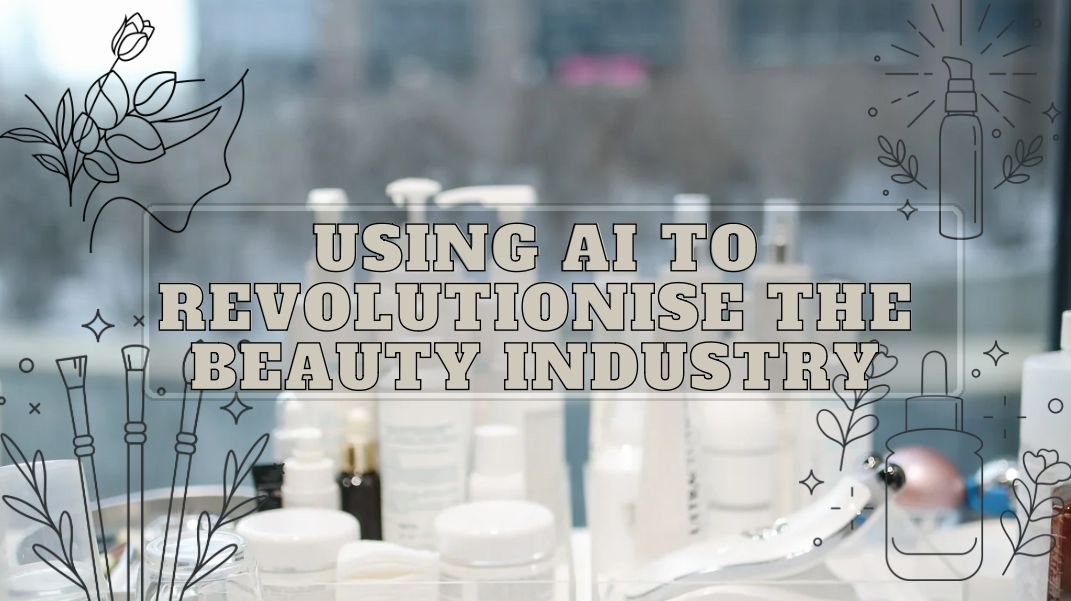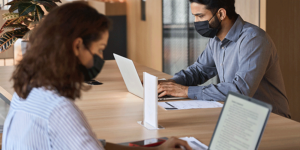
The Indian audience includes a myriad of cultures, that stretches across state lines. In an environment that must cater to a spectrum of preferences, the beauty industry has to successfully cater to diversity.
Times have changed and AI has become a regularly employed provision in multiple industries. Including the Indian beauty industry.
By providing features such as personalised recommendations and the recourse of virtual try-ons, AI has drastically changed the expectations customers have. The manner in which they interact with beauty products has been revolutionised irreversibly.
Some ways in which AI is being harnessed within the Indian beauty industry, include the following –
Customised product recommendations
Beauty products in the past, often catered to a limited audience. Distinct skin requirements, conditions and complexions were often unaccounted for. AI algorithms are now being used to analyze data, helping provide customers with personalised product recommendations.
Various skin conditions, tones, preferences, and previous purchases are taken into account by the algorithm, helping it suggest both skincare and makeup provisions.
For instance, “Forest Essentials” is an Indian ayurvedic beauty brand. They recently added the provision of customisable creams with Ayurvedic facial care formulations, that address specific skin concerns.
They provide a questionnaire to their customers, and the garnered responses are analysed by the algorithm. The system then suggests the most appropriate product after having considered and evaluated relevant information. A otherwise cumbersome task for dermatologists and related professionals.
Virtual try-ons: A digital mirror
Before the introduction of AI-backed platforms, picking out make-up and skin care products online was a difficult task. Understanding the manner in which products would look on customers, required them to visit physical outlets and retail stores.
Today AI-powered platforms enable customers to visualise the way colour shades, hair accessories, and jewellery would look on them in real life. This provision erases hesitations often associated with trying products in a physical setting, making the luxury of experimenting with beauty more accessible and less time consuming.
Virtual try-ons have effectively bridged the gap that once distinguished the online shopping experience from the offline one.
The e-commerce beauty giant “Nykaa” recently partnered with L’Oreal to launch an Al-powered virtual try-on technology “ModiFace” on their platform.
The tech makes use of a “face tracker algorithm” that detects facial features such as the lips, the eyes, cheeks, and hair. It further uses Augmented Reality to apply virtual filters that represent cosmetics in real-time, providing a realistic view of how products would look on customers.
Advanced skin analysis and diagnostics
One of the most impactful changes that have taken place after the introduction of AI to the beauty industry, includes the new era of skincare diagnostics.
Customers can upload images of their skin issues and algorithms can then identify conditions such as acne, pigmentation, etc. This data is then used to provide customised skincare routines and recommended products.
The company “Clinique” uses a similar diagnostic tool. Customers can upload pictures, which are then analysed using a geometric data tool that identifies skin conditions like hyper-pigmentation and acne. The algorithmic hydration analysis feature analyses micro-textures and skin topography to identify dryness.
Content creation
Content creation has been altered after the introduction of AI. Beauty brands have employed algorithms to generate product reviews, tutorials, and deepfake videos that demonstrate virtual makeup application.
Applications like Midjourney use algorithms to generate images and designs, helping brands develop concepts for their packaging. Further enabling the creation of relevant content without investing in manual labour.
Algorithms analyze social media trends and review online discussions, to predict possible beauty trends. This allows brands to stay relevant while appealing to their specific target audience.
Supply chain management
Analyzing historical data and relevant trends, AI algorithm help with forecasting demand and aid inventory management. Ensuring that popular products stay in stock, further minimising production of waste, and streamlining the distribution process.
Technologies such as Bucephalus’ AI-backed system recommend the quantity of product to order, tailored to vendor availability, location and demand forecasts. It also provides holding costs for perishable goods, helping save resources.
Color matching and customisation
Algorithms can accurately match makeup shades to an individual’s skin tone, ensuring a seamless and natural look. Moreover, brands are leveraging AI to create custom foundation shades and personalized hair colors, providing consumers with unique options that cater to their preferences.
Accelerating Research and Development
The formulation of beauty products is being accelerated by AI simulations. These simulations predict how various ingredients interact and their effects on different skin types. As a result, the research and development process becomes more efficient, enabling brands to bring innovative products to the market faster.
AI-Generated Fragrances: A Personal Touch
Some companies are pushing the boundaries by utilising AI to generate fragrances. By analysing user preferences and scent profiles, AI algorithms create personalised scents that resonate with individuals on a deeply personal level. This innovation brings a new dimension to the world of beauty and personal care.
The Indian beauty industry’s embrace of AI is redefining the landscape in profound ways. From personalised recommendations to virtual try-ons and beyond, AI is enhancing customer experiences and revolutionising the way we engage with beauty products. However, it’s crucial to navigate this transformation responsibly, addressing concerns related to data privacy, ethical considerations, and perpetuating unrealistic beauty standards. As AI continues to evolve, it holds the potential to make beauty more inclusive, accessible, and empowering for all.







![Read more about the article [Funding roundup] The Meat Chop, Mocero Health, Trace, others raise early-stage capital](https://blog.digitalsevaa.com/wp-content/uploads/2022/11/Funding-1587044486257-300x150.png)

![Read more about the article [App Fridays] Up your video editing game with this app that lets you edit videos for free](https://blog.digitalsevaa.com/wp-content/uploads/2021/04/App-Friday-VITA-1618477159019-300x150.png)
